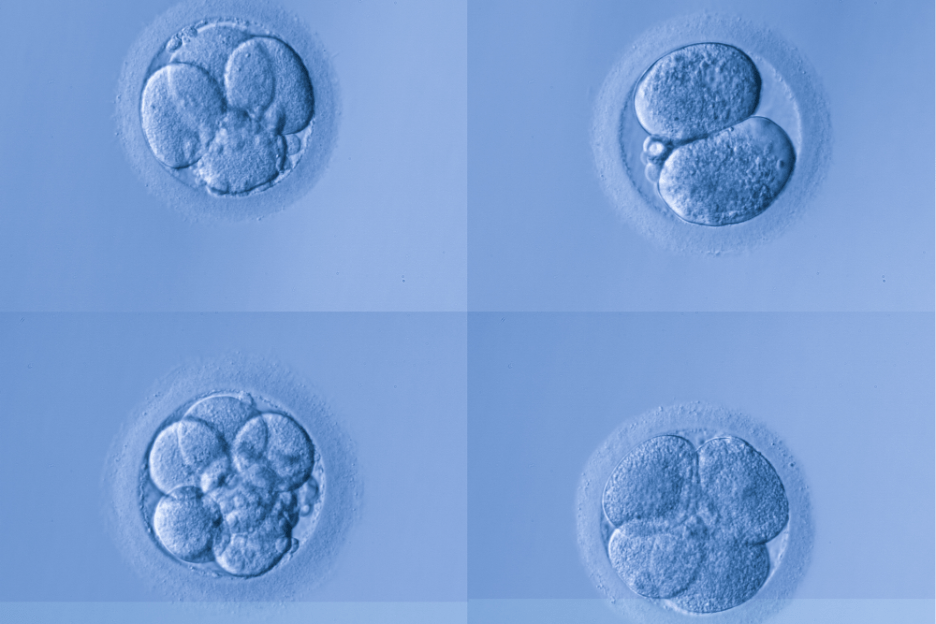
(Source)
Since the beginning of President Trump’s second term, the federal government has quickly implemented the goals outlined in Project 2025, a far-right initiative published by the Heritage Foundation and supported by republicans. One of these goals is to create a federally recognized “fetal personhood,” a once-fringe pro-life legal theory that has gained traction since the overturning of Roe v. Wade.
What is “Fetal Personhood”?
“Fetal personhood” laws refer to a category of laws that grant legal protection to unborn persons. They are most often found in laws that limit reproductive rights, including access to abortion, contraception, and even IVF. However, creating legal rights for unborn persons opens the floodgates to a plethora of legal questions in tax law, property law, and even criminal law.
To understand fetal personhood as a legal concept, it is important to review the timeline of fetal development. The development begins with conception, which is when a sperm cell and an egg cell combine and create a zygote. At this point, the zygote looks like a clump of cells that travel to the uterus and split into what will become the embryo and the placenta. Approximately three weeks after conception, one half of the zygote grows into the embryo. Nine weeks after conception, the embryo grows into a fetus. Modern science cannot tell us when exactly these cells become a “person,” but a significant amount of the fetal personhood movement considers personhood to begin at the moment of conception.
The Fetal Personhood Movement in the United States
The fetal personhood movement has gained traction in multiple states since Dobbs v. Jackson Women’s Health Organization overturned Roe v. Wade in 2022. For example, in the 2024 Alabama Supreme Court case LePage v. Center for Reproductive Medicine, P.C., the state court found that fertilized embryos prepared for IVF were persons even before they were implanted in a uterus. This meant that, in Alabama, any embryos that did not survive before implantation would be considered a violation of the Wrongful Death of a Minor Act. The Alabama legislature quickly passed legislation to allow doctors to continue providing IVF treatment without liability, but the court’s decision indicated how far “personhood” could go. Multiple bills recognizing fetal personhood have been proposed or implemented in other states, including Colorado, Georgia, and Iowa.
The movement had a slower start in the federal government but made significant steps since Dobbs and again at the beginning of President Trump’s second term. In January 2023, Representative Alexander Mooney introduced the Life at Conception Act to the House of Representatives. The bill would have Congress recognize that the right to life begins at conception. As of February 2025, the bill has not moved forward. In January 2025, Representative Eric Burlison introduced H.R.722, which would “implement equal protection under the 14th article of amendment to the Constitution for the right to life of each born and preborn human person.”
While proposed federal legislation implementing fetal personhood has not gone far in Congress, the executive branch has already defined life as beginning at conception. Trump’s Executive Order 14168, Defending Women from Gender Ideology Extremism and Restoring Biological Truth to the Federal Government, orders the federal government to recognize only two genders, which align with binary sexes. However, the language in the executive order defines “female” and “male” as “a person belonging, at conception, to the sex that produces” either “the large reproductive cell” for females or “the small reproductive cell” for males. Pro-choice advocates have warned that the administration chose these words specifically to create a federal precedent of fetal personhood. Additionally, Mike Johnson, a pro-life republican and Speaker of the House, has made statements arguing that the executive order was intended to define life beginning at conception rather than at birth. This is a strategy within the pro-life movement: to include fetal personhood in bills unrelated to abortion in order to support future abortion bans based on the rights of a fetus.
The Reach of Fetal Personhood
Critics of the fetal personhood movement have responded to these fetal personhood bills with bills of their own. In Missouri, Senator Bradford Blackmon introduced the headline-grabbing Conception Begins at Erection Act. The Act seeks to impose fines up to $10,000 on those who “discharge genetic material without the intent to fertilize an embryo.” However, Senator Blackmon’s self-proclaimed intention is not to actually fine anyone but rather to comment on how abortion laws focus on regulating the female reproductive system when the male reproductive system is “fifty percent of the equation.” Despite being obviously tongue-in-cheek, this bill introduces an idea beyond fetal personhood, the idea that life begins before conception. The bill makes us ask the question: just how far can fetal personhood go?
The most obvious consequences of fetal personhood laws are restrictions on abortion and contraception. If a zygote or a fetus is a person, abortion might be legally considered murder. The same goes for certain types of birth control. IUDs can prevent the implantation of a fertilized egg, and if a zygote is legally a person, does this mean that IUD users can be convicted of manslaughter? If federal fetal personhood laws follow the logic used in the Contraception Begins at Erection Act, then sperm cells and egg cells could have legal rights. Does this mean that male masturbation and female menstruation, both of which result in the expulsion of sperm and egg cells without fertilization, could be made unlawful? This last question might seem like a ridiculous one, more so a memorable joke from the 2001 film Legally Blonde than a serious legal discussion, but it illustrates just how far-reaching fetal personhood really is.
The legal concept of fetal personhood has already seeped into other areas of law. In 2022, the state of Georgia determined that residents could list an unborn child as a ‘dependent’ on their taxes. This was an interpretation of the state’s Living Infants, Fairness and Equality (LIFE) Act of 2019, which prohibits abortion after six weeks of gestation. In 2023, an imprisoned Florida woman argued that her unborn child was unlawfully detained. Her argument was if a fetus is a person under the law, then they have the same constitutional protections as any born person. Therefore, the fetus was deprived of its due process rights, and the woman should be released until she gave birth. Other legal questions have not been raised in court cases but instead in legal scholarship. Legal scholars question what fetal personhood means for inheritance purposes. Property law contains a common law rule known as the rule against perpetuities, which is intended to stop someone from controlling a property interest for a significant time after their death. The rule, put simply, requires a property interest to vest within a lifetime plus twenty-one years. If fetal personhood applies to embryos frozen for purposes of IVF, could a “lifetime” last as long as the embryo is frozen? This would mean that someone could tie a property interest to the life of a frozen embryo to prevent the property from being bought and sold for as long as the embryo stays frozen, essentially defeating the rule against perpetuities.
As seen above, the fetal personhood movement introduces difficult legal questions across almost all legal fields in the United States. A possible solution might be explicitly limiting fetal personhood to reproductive law, and no other laws, but this creates new problems. The first is that this limitation dilutes the pro-life argument that fetuses are people. If a fetus has rights as a person in abortion legislation, but not in criminal law, it looks more like a way to implement restrictions on abortion than a genuine belief that life begins before birth. The second issue is that this would create a dangerous precedent for inconsistency in the law. If a fetus has protection under the Constitution in some situations but not others, what is stopping the government from applying that logic to another class of persons?
The issues raised above (and the other questions raised in this article) are resolved in a third option: to abandon fetal personhood altogether and determine that legal personhood begins at birth. However, despite the threats to reproductive freedoms and the abundance of disruptions to established legal principles, it seems that fetal personhood is here to stay. Therefore, both lawmakers and courts should consider this development carefully and be cautious when making decisions in all areas of law because it is unclear just how far fetal personhood can go.
Suggested Citation: Johanna Hussain, The Legal Consequences of the Fetal Personhood Movement, Cornell J.L. & Pub. Pol’y, The Issue Spotter, (Mar. 4, 2025), https://jlpp.org/legal-consequences-of-the-fetal-personhood-movement/.


